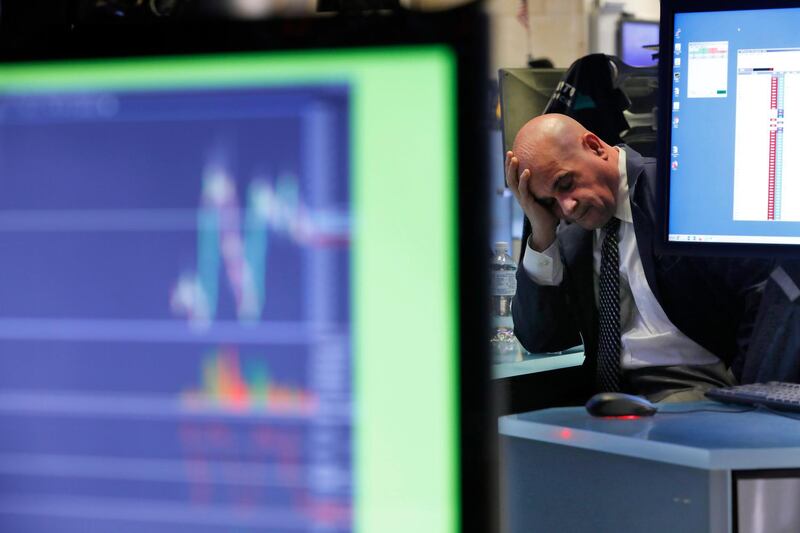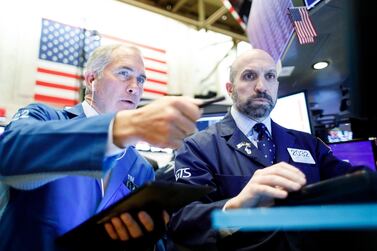Oil prices and global stocks slumped to their worst week since 2008, dragged down by concerns over the rapid spread of the coronavirus, which has now spread to more than 40 countries.
Brent, the most widely used international crude benchmark fell 13 per cent over the course of the week to settle at $50.52 per barrel, the steepest weekly decline since 2008. West Texas Intermediate, the North American benchmark meanwhile tumbled 16 per cent to close at $44.76 per barrel on Friday. Both benchmarks haven't hit such lows since mid-2017.
Global stocks also suffered their worst week since the global financial crisis in 2008. The S&P 500 fell 0.8 per cent on Friday, declining more than 10 per cent over the week.
The rout came amid a surge in cases inside China, the epicentre of the virus known as Covid-19 as well as outside the country, notably in Iran. Death toll from the virus has topped 2,800 with confirmed infection cases worldwide surpassing 84,000.
Investors are increasingly worried about a global economic slowdown from the virus, which has already disrupted supply chains and global trade. Chinese factory activity has also fallen sharply in February, with its official index hitting the lowest level on record. The manufacturing purchasing managers' index fell to 35.7 in February from 50 the previous month, according to the National Bureau of Statistics. The non-manufacturing index meanwhile also fell to its lowest-ever 29.6, well below the 50 mark.
Markets remained sensitive to further disruptions as the World Health Organisation raised its global risk assessment for the novel coronavirus to "very high" from high, stopping short of labelling it a pandemic.
Oil prices could be set for a correction later this week when Opec+ meet in Vienna on March 5 and 6 to consider additional measures to tackle the slide in prices.
The group's technical committee had earlier recommended a short term deepening of cuts by 600,000 barrels per day until the second quarter, while keeping the existing pact of 1.7 million bpd until the end of this year.
The latest slide in oil prices may coax a reluctant Russia, which leads non-members within the alliance, to consider more output restrictions. Moscow has remained ambivalent about the impact of the coronavirus on the oil markets and said it needed more time to gauge the full impact.








